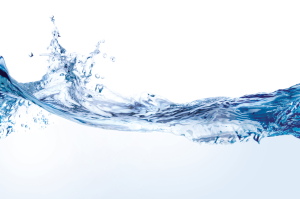For hospitals, biotech companies, pharmaceutical manufacturers, blenders or any other facility that needs purified water for their production, deionized water is crucial. So exactly what is deionized water, or di water, and why does it matter? We’ll look at the science, and how its application can even be a matter of life or death.
A real-life tragedy illustrates the importance of deionized water.
Three years ago, a company producing a bactericide for cotton swabs had an issue with their manufacturing process that included a deionized water system.
As a result, lawsuits have been filed claiming the product sickened and may have fatally injured the end users.
The process of deionization in a purified water system removes all of the charged ions in the water, making it safe to mix into medications and dramatically reducing the chances of this type of tragedy.
But to really understand the importance of deionized water, we need to first look at the chemistry behind it.
The Chemistry Behind Deionized Water
Water in its purest form is composed of hydrogen (H+) and hydroxyl (OH-) ions, which together make H2O. When considering water’s purity, anything besides the water molecule is an impurity.
Deionization is the process of removing all of the charged ions in water except the water molecule (H2O). This results in a true water “blank” – nothing but water in its absolute purest state.
There is one main measurement that determines the purity of deionized water – its resistivity to electricity (measured in Megohms).
Resistivity to electricity
When deionized water is in its purest state, it measures 18.3 Megohms of resistivity, meaning the water has a very high resistance to electricity.
Contrary to popular belief, water in its purest state is not an electrical conductor. That’s because the deionization process removes all the charged ions from water that would otherwise carry an electric charge.
In theory, if you were lying in a tub of pure deionized water and dropped in a toaster, you would be just fine. The absence of conductive charged ions in the water creates a highly resistive liquid that an electrical charge cannot pass through.
Di water measured at 18.3 Megohms has a pH of 7, meaning it’s absolutely neutral. When water is completely neutral, it will take on the characteristics of any substance added to it.
Now that we know the science behind what makes deionized water, let’s discuss why it’s important.
The Importance of Deionized Water
Deionized water is a true water blank, meaning it assumes the chemistry of whatever product added to it. This has critical implications, especially for the medical industry.
When medical product manufacturers create a product, water is almost always mixed in. However, to create a chemically sound product, the water can’t contain any impurities that could potentially change the product’s chemical composition.
For example, if a chemist wants to make Saline or another solution that’s going to be injected into the body, their water needs to meet a standard called “water for injection,” which starts with deionized water.
That way, when the Saline formula is added to the water, it creates an exact replica of the solution they need.
If the water contains any impurities or metal, such as copper or lead, it will cause adverse health effects for whomever injects the product.
Deionized water is a critical element for the industries that need it. Especially in the medical industry, failing to use a safe deionized water system can have serious and, as we saw with the example above, potentially fatal consequences.
We’ll do more than give you a quote—we’ll visit your site to analyze your industrial water needs.


Follow Us